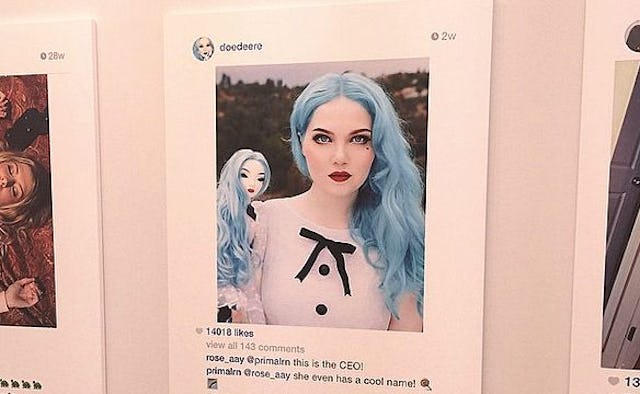Why You Should Keep Your Social Media Accounts Private

No word yet on the consequences, but the Harlandale Independent School District in Texas is investigating reports about one of their teachers, who was having a little too much fun with her Pinterest page. A parent whose son is going to start elementary school there did some pre-emptive detective work on the teachers, and was most unhappy to find that one of them was posting sarcastic e-cards like this one:
Oh, and this one, too:
The parent is demanding disciplinary action, and the school district is looking into it.
The bigger question of whether or not teachers should be allowed to post non-specific, humorous job-related vents like this still needs to be answered, but my recommendation to all teachers is to keep your accounts private or use a fake name. I know some teachers who don’t use their real names on Facebook for exactly that reason.
Parents are also advised to be careful with their accounts. We all love posting pictures of our kids for our families and friends to see, and I think at one point or another, we’ve all struggled with the question of what’s okay to share and what isn’t. My Facebook account is private, but it’s certainly easy enough for a friend to innocently get a screen grab of one of my adorable kids and share it, with all good intentions, with another friend, and then boom! It’s out there. Our kids will grow up, and then find out that there’s some cute-at-the-time-but-now-embarrassing photo of them floating around online, and there’s nothing they can do about it.
While people mostly worry about their photos being used for nefarious purposes, now we also have to worry about people making a profit off of them. “Artist” Richard Prince—I use the term loosely, and you’ll know why in a moment—recently showed a collection at the Frieze New York art fair called “New Portraits.”
Here’s the description from The Washington Post: “The collection, “New Portraits,” is primarily made up of pictures of women, many in sexually charged poses. They are not paintings, but screenshots that have been enlarged to 6-foot-tall inkjet prints.” According to Vulture, almost every piece sold within a few hours, most for as high as $90,000. Each.
What are they screenshots of? Other people’s Instagram posts.
The original posters get nothing—not a dollar, not an apology, not a thank you. Their accounts were public, and that was that. All Prince did to make them his own was blow them up into poster-size prints, and then add some comments on each. He even kept the original usernames. The Washington Post spoke to Instagram about the legal repercussions, then summed it up for us: “Basically, if someone copies your Instagram to an account of their own, the company can do something about it. If they copy your work to somewhere outside of the social network, like a fancy New York gallery, you’re on your own.”
Prince, in the meantime, is cashing his checks.
I think most of us are aware at this point that privacy on the web doesn’t really exist even when we think it does. But see how easy it is to forget? So besides following the “When in doubt, leave it out” rule, it might be wise to lock up your accounts, as well as your kids’ accounts, and keep some semblance of privacy at the expense of potential Internet fame. You might not want the kind of fame you end up with.
This article was originally published on